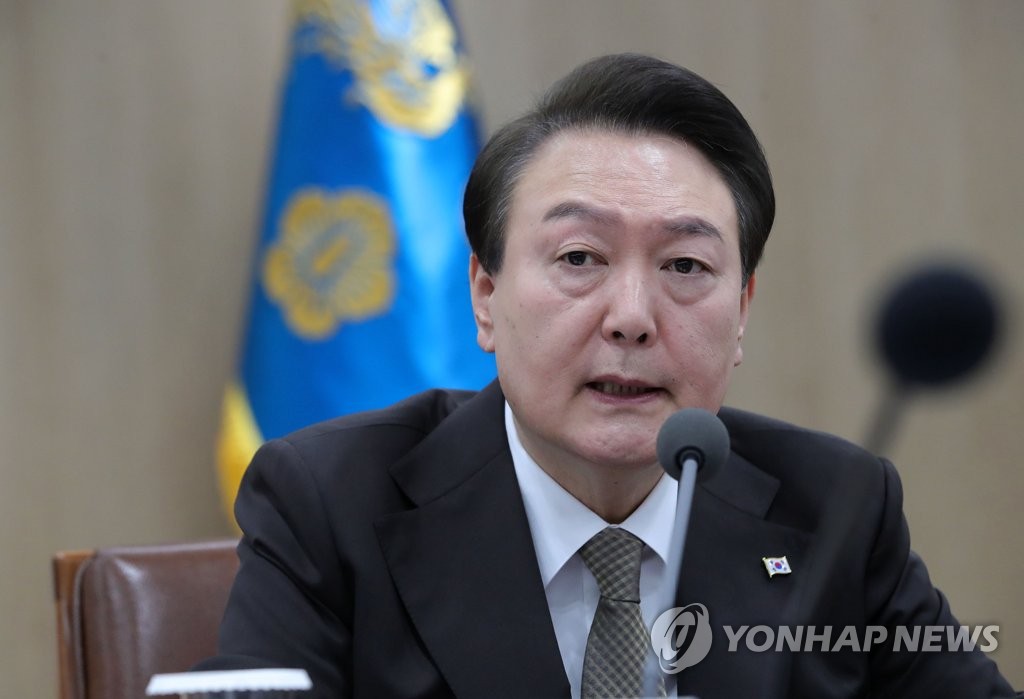- California Assembly OKs highest minimum wage in nation
- S. Korea unveils first graphic cigarette warnings
- US joins with South Korea, Japan in bid to deter North Korea
- LPGA golfer Chun In-gee finally back in action
- S. Korea won’t be top seed in final World Cup qualification round
- US men’s soccer misses 2nd straight Olympics
- US back on track in qualifying with 4-0 win over Guatemala
- High-intensity workout injuries spawn cottage industry
- CDC expands range of Zika mosquitoes into parts of Northeast
- Who knew? ‘The Walking Dead’ is helping families connect
Yoon says will freeze public utility fees in first half of year
President Yoon Suk Yeol said Wednesday the government plans to freeze railroad, postal and other public utility fees in the first half of the year to help ease people’s economic burdens.
Yoon announced the plan during an emergency economic and public livelihood meeting held amid a public outcry over soaring heating bills, high interest rates and rising inflation.
Yoon also called on the communications and financial industries to take part in sharing the people’s economic burden by actively taking steps to contain prices.

“We will handle public utility fees managed by the central government, such as road, railroad and postal fees, under the principle of a freeze during the first half of the year as much as possible,” Yoon said, asking regional governments to also work to stabilize local public utility fees.
“We will control the scope and speed of increases in electricity, gas and other energy fees to minimize people’s burdens, and provide more generous support to vulnerable groups,” he said.
Yoon took special aim at the communications and financial industries, saying both have “strong characteristics” of a public good, which have maintained an oligopoly as the government’s specially permitted businesses.
Yoon instructed relevant ministries to find ways to increase “actual” competitiveness in the oligopolistic banking and communications sectors, his office later added.
In banking, he stressed the need to reduce the loan-deposit margin, or the difference between interest rates on loans and those on deposits, Choi Sang-mok, senior presidential secretary for economic affairs, told a press briefing.
The country’s top commercial banks have come under criticism for posting record profits last year on the back of the wide margin while ordinary citizens and small business owners have struggled under the weight of higher interest payments.
Yoon also emphasized the need for banks to protect vulnerable citizens by increasing reserve funds during periods of high profits and using them to support citizens and businesses during difficult periods, Choi said.
In communications, Yoon called for further diversifying cell phone plans to give people more options to save on phone bills.
“As they greatly impact the household budgets of struggling ordinary citizens, I believe the (banking and communications) industries should voluntarily take part in sharing the pain of price stabilization, in tandem with the government’s efforts to improve relevant systems,” he said.
Yoon stressed the government will put people’s livelihood issues at the center of all policies and asked the ministers in attendance to contemplate “day and night” over ways to ease the people’s burdens.
He also stressed the need to base all policies on science, saying policies driven by ideology and populism have proven to bring suffering to the people.











